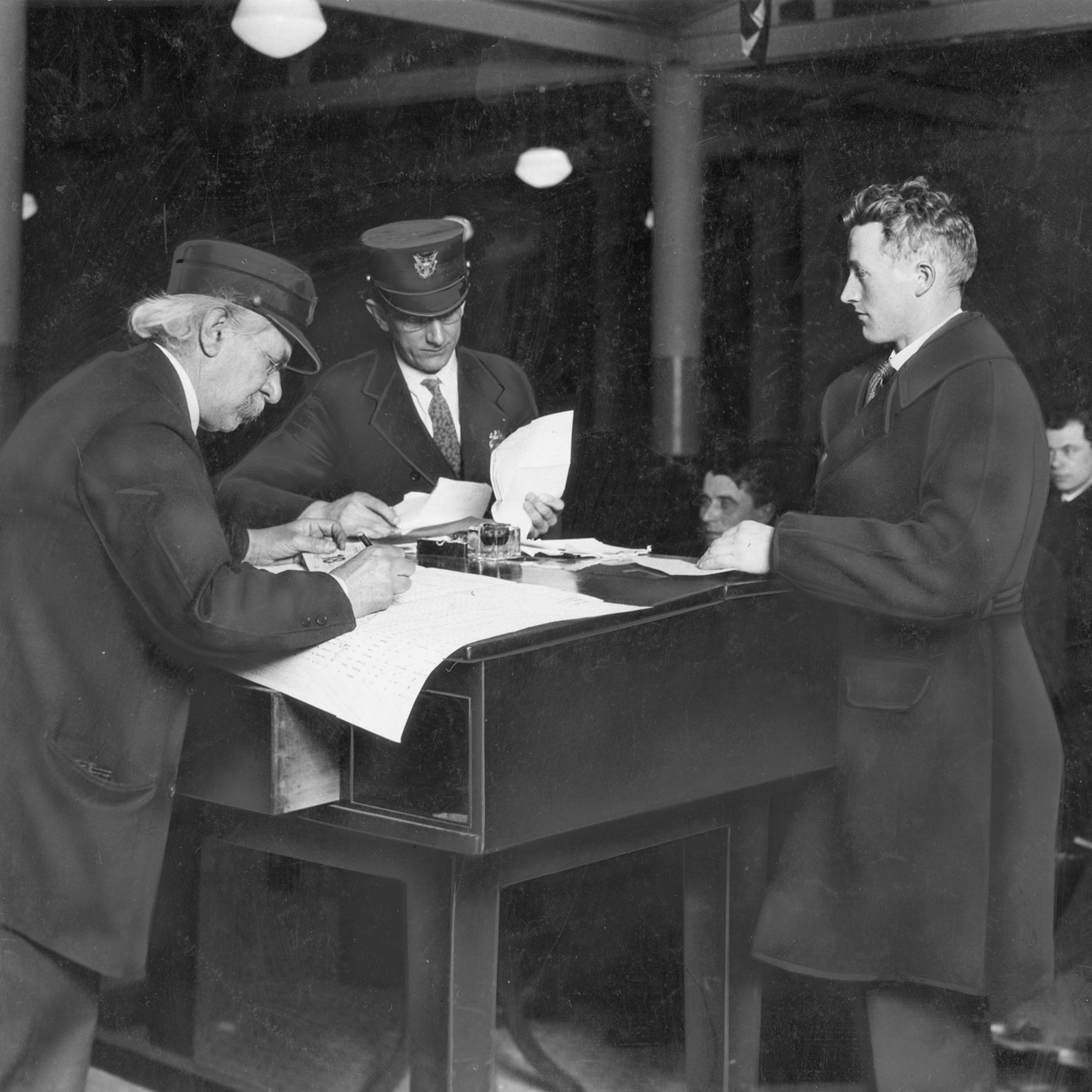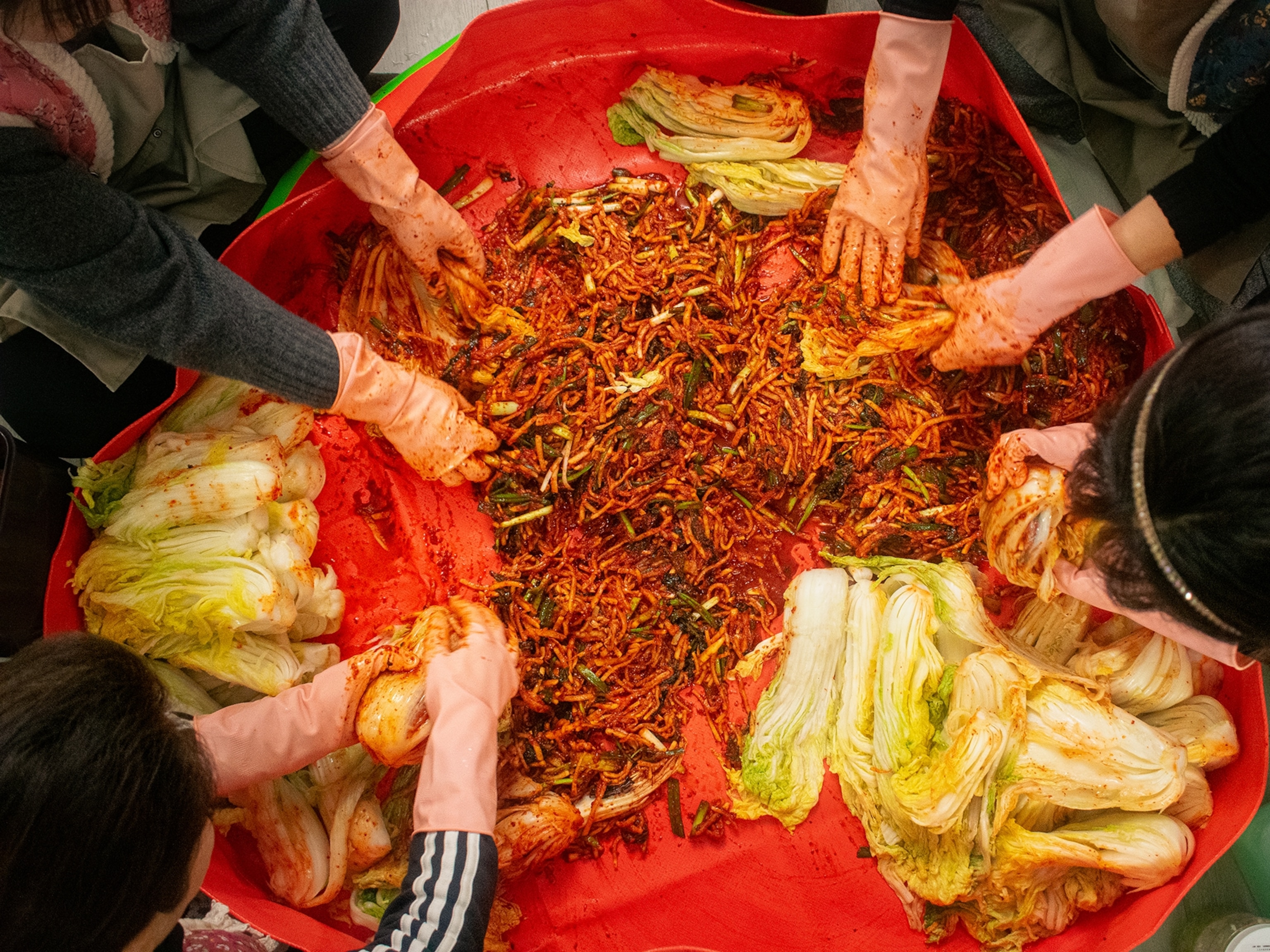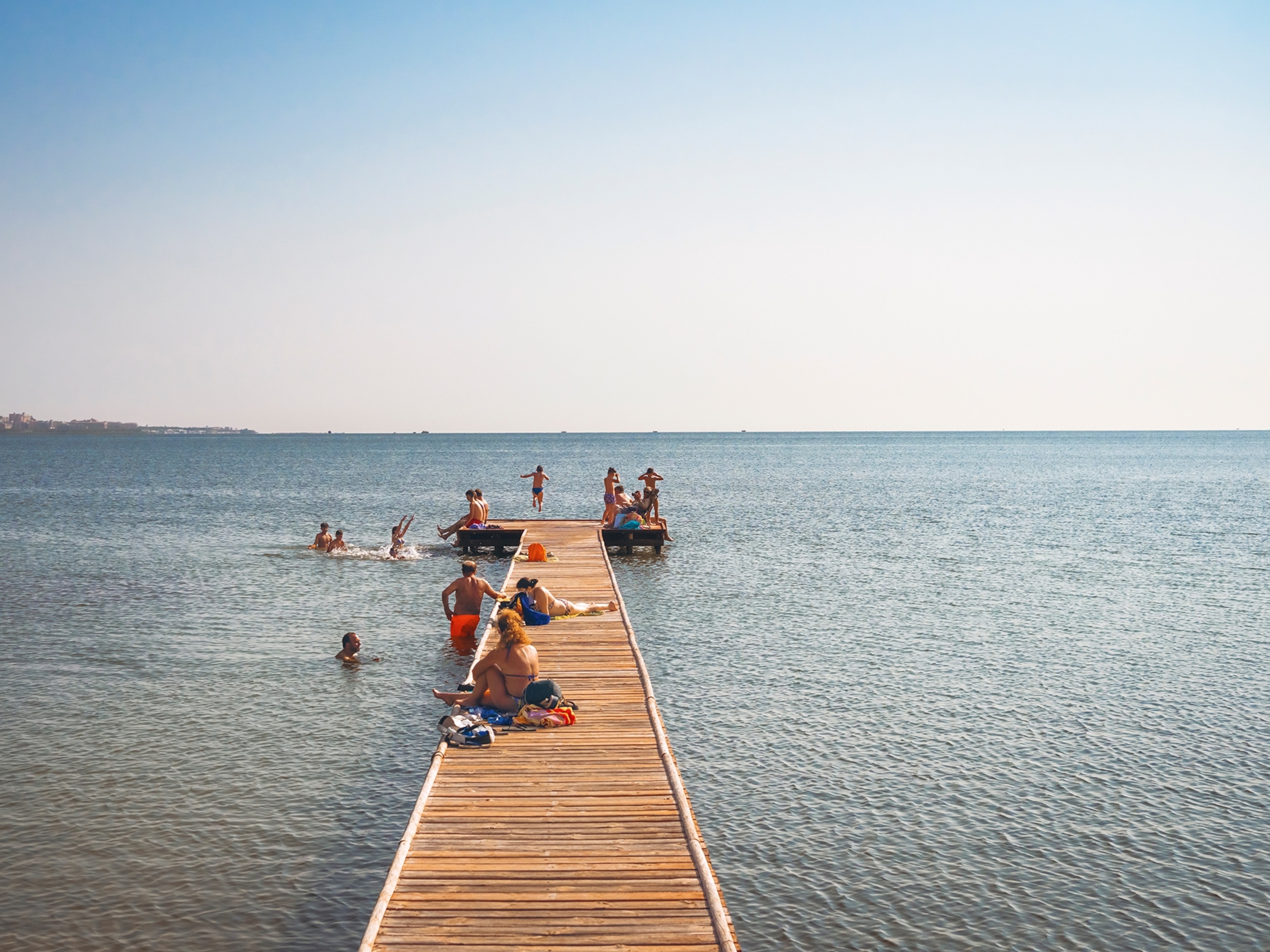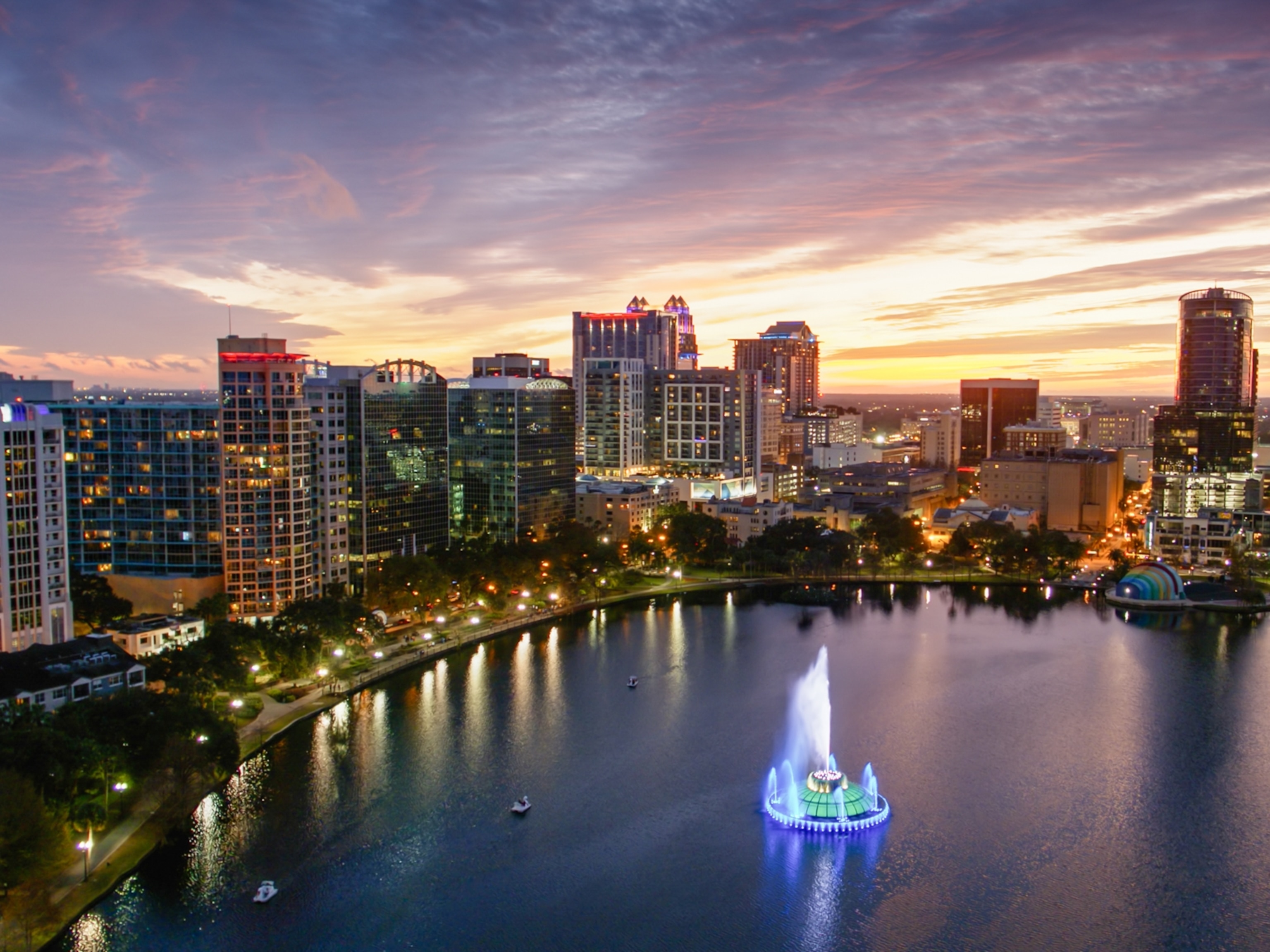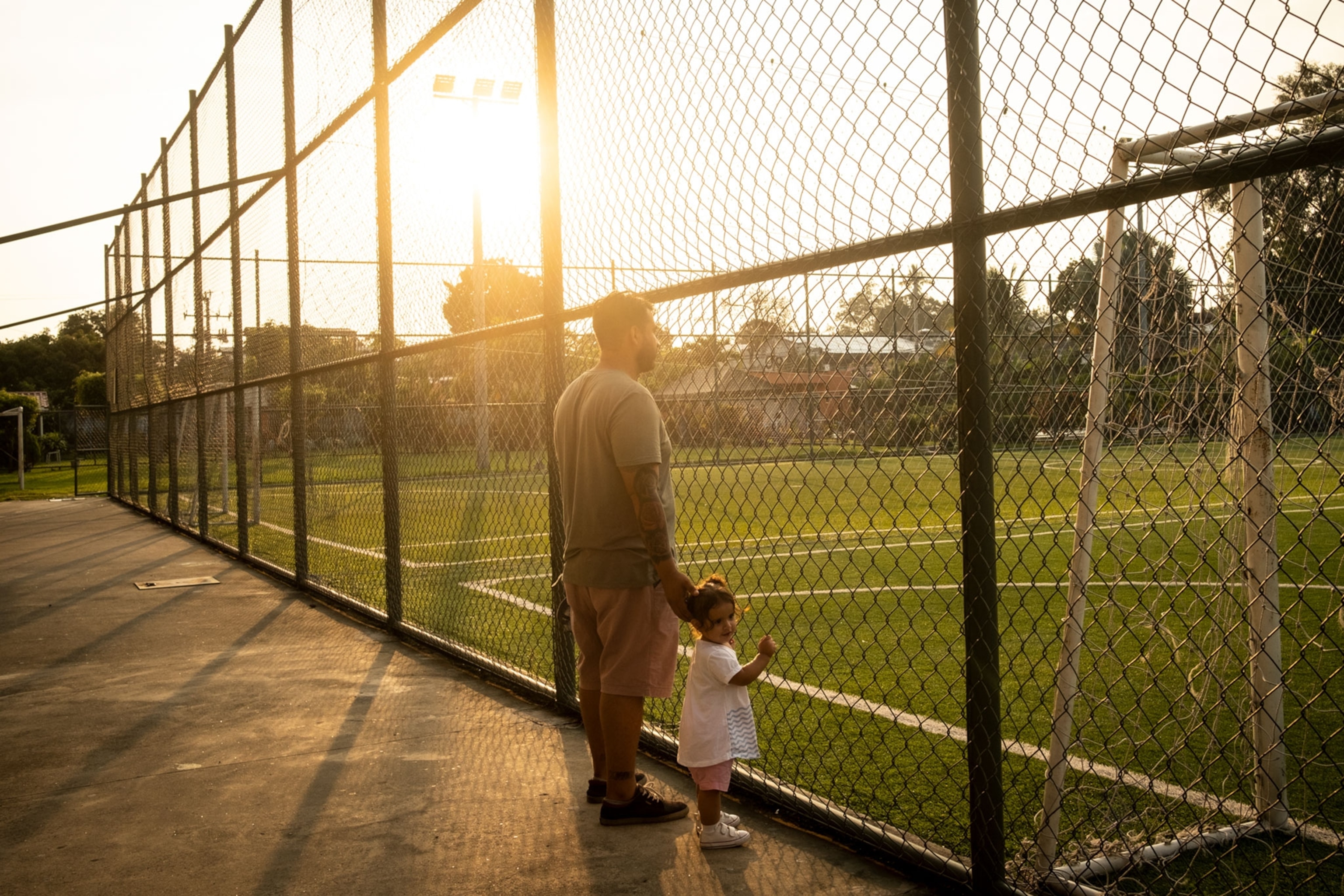
Deported migrants struggle to start over in a place that doesn’t feel like home
Salvadorans deported from the U.S. face an agonizing dilemma: risk returning to the life they know, or building a new one in their native land.
San Salvador, El Salvador — Mayra Machado spends her days in San Salvador fielding calls from parents in the United States desperate to have their children join them.
The parents’ anguish strikes a chord. Machado, who works with the Central American Minors Program focused on legally reuniting minors from El Salvador, Honduras and Guatemala with parents who migrated, had lived in the U.S. since she was five years old. She was first deported to El Salvador in January 2017, leaving behind her three kids, then 11, 10, and 7.
Desperate to reunite with them, she didn’t stay long before migrating again. But U.S. Immigration and Customs Enforcement (ICE) agents caught up with her after Machado got into a minor car accident in Arkansas while dropping off her kids at school. She was deported to El Salvador a second time in January 2020. Machado hasn’t seen her children in person since. Parenting now is done through texts and FaceTime. It’s how she helps her children with their homework, gives them advice about their crushes, or serves as a virtual mediator when they won’t listen to their grandmother raising them in Arkansas.
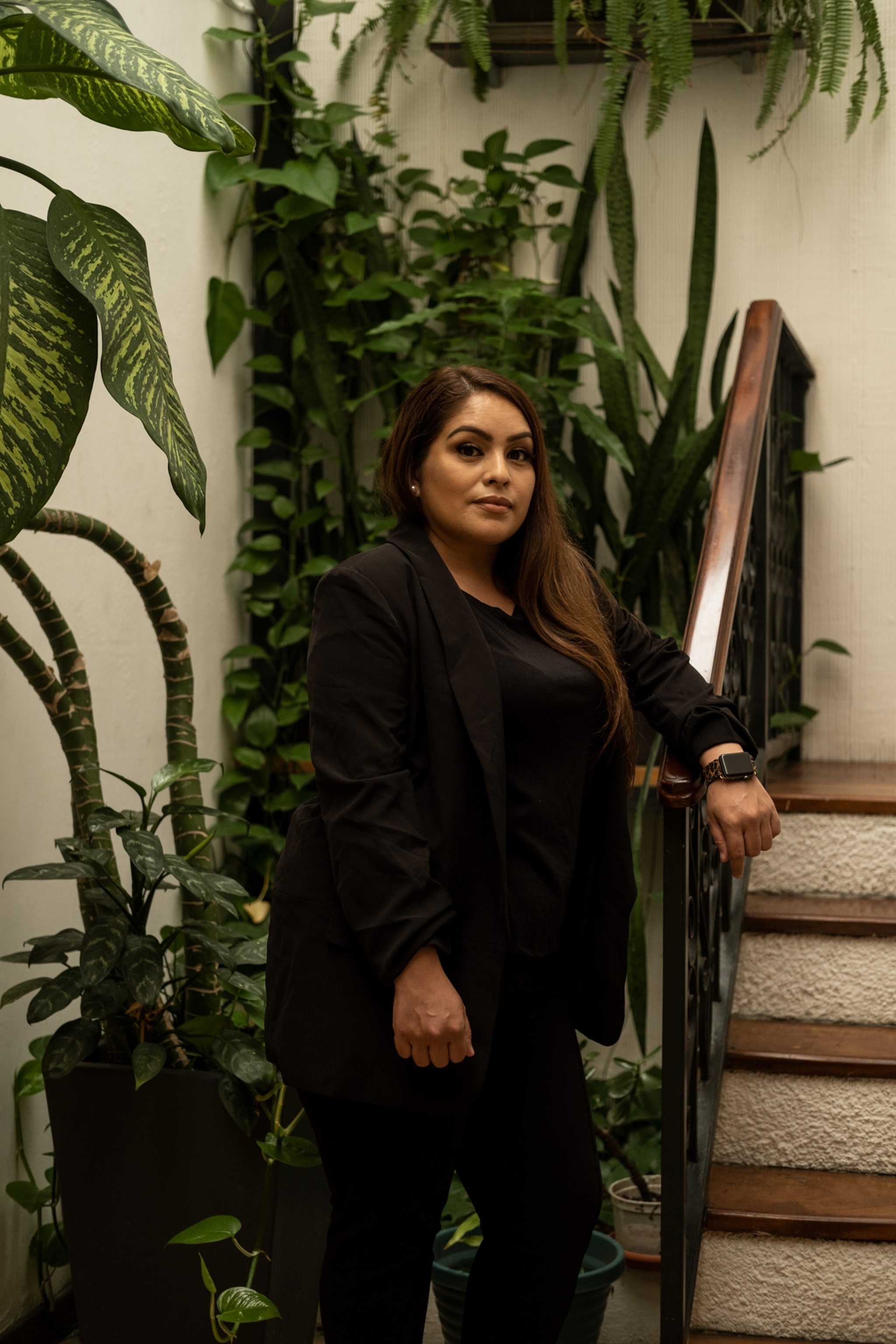
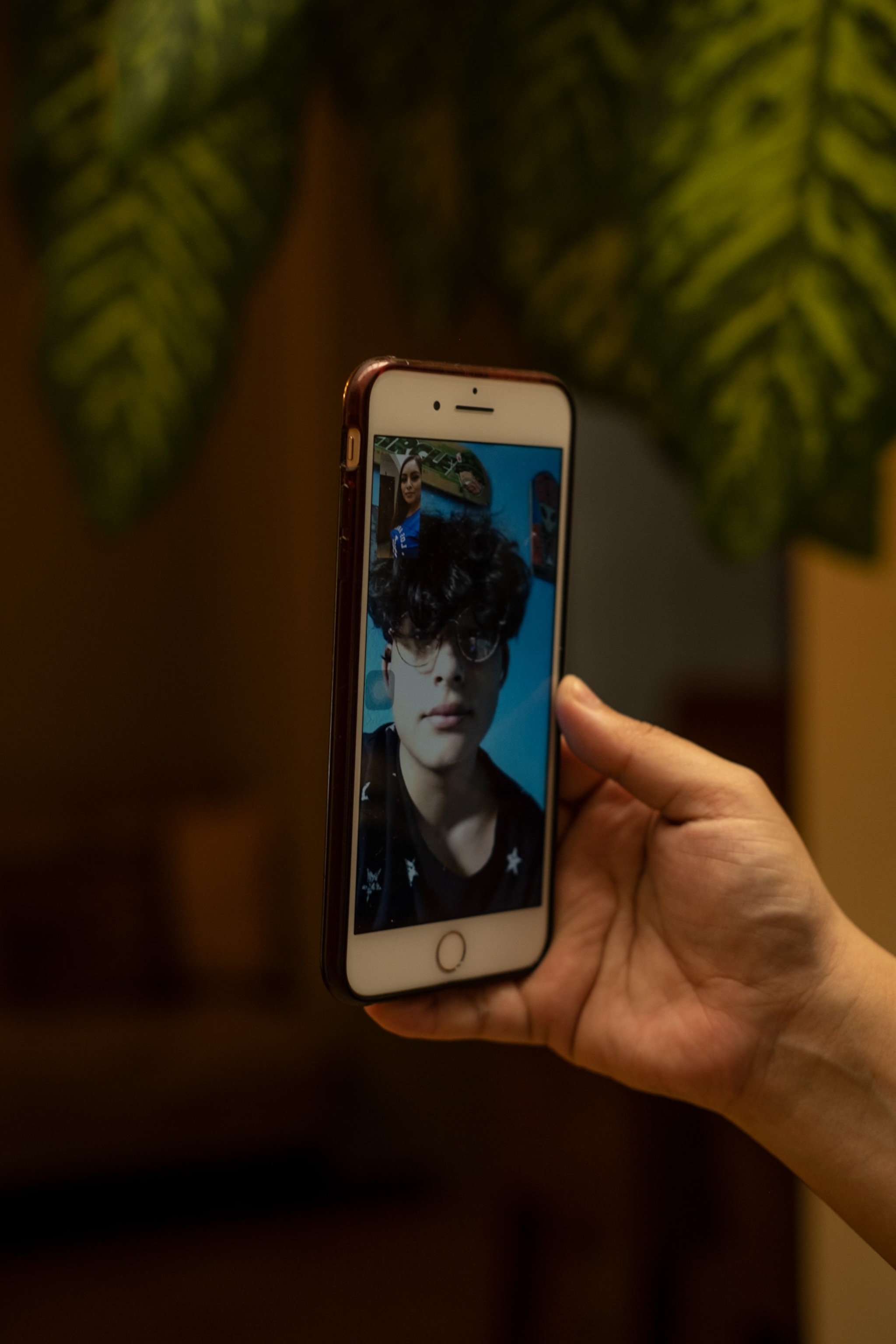
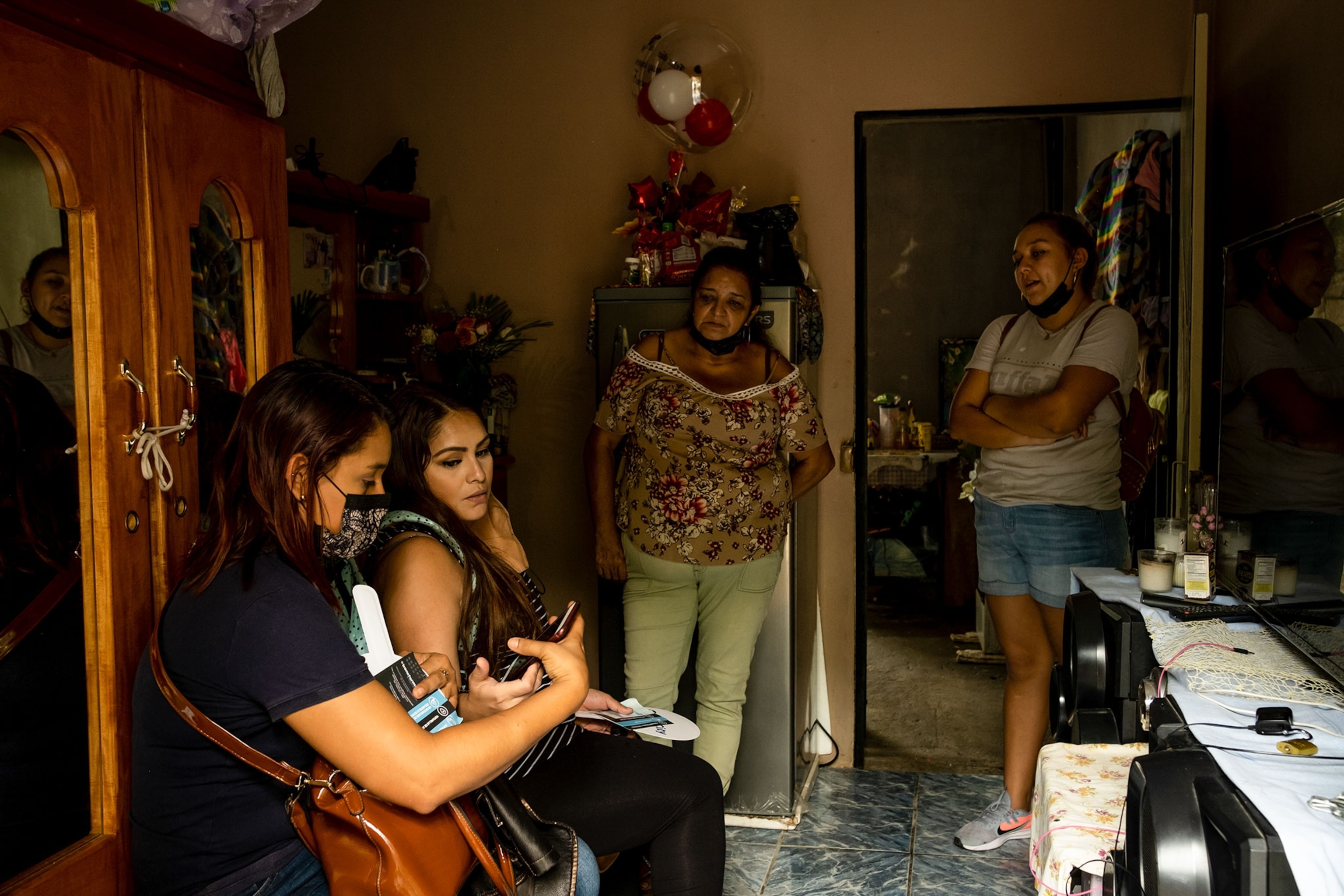
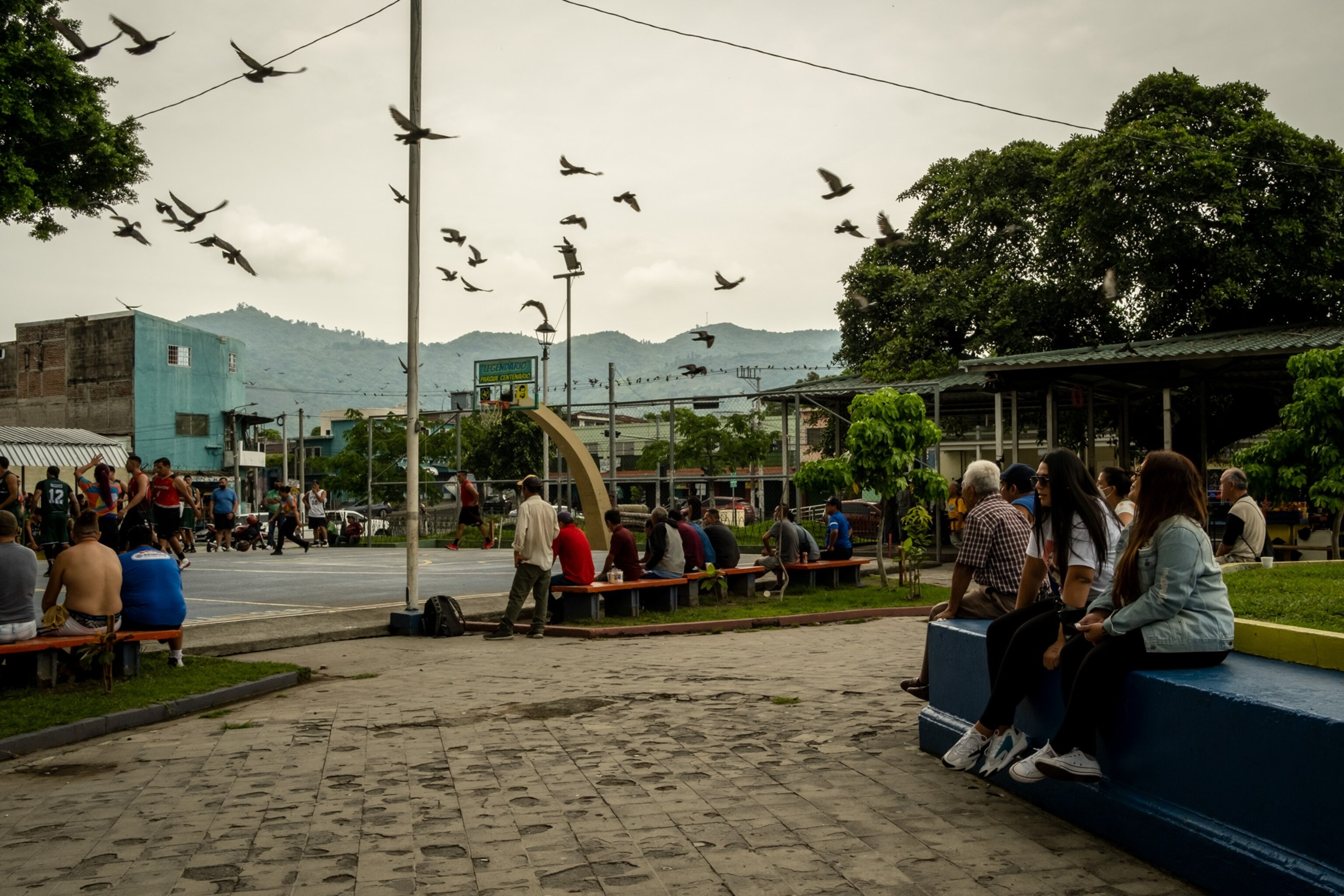
“Look, mom, so there’s this girl,” her son told her during a video call recently. “So what about her? What’s she look like? Let me see a picture,” she responded, trying to strike the perfect balance between mom and friend. Her kids didn’t answer her calls for a week once because they thought her motherly advice was too harsh.
“Communication is all I have,” Machado, 36, says in English at her office in San Salvador, while constantly checking her phone to make sure she doesn’t miss a message. “The moment that I close that communication with them, what am I gonna have?”
Machado is among the more than 100,000 Salvadorans deported from the United States since 2015, according to the most recent data provided by Salvadoran authorities. The number of Salvadorans who were apprehended by U.S. immigration authorities after crossing the southern border in that period was greater than the number of deportees. But policy changes in recent years to focus on immigration enforcement outside border regions and target more undocumented immigrants meant more people like Machado—immigrants with deep roots in the U.S.—were sent back to El Salvador.
Many deportees arrive to a country they barely know. Without a support system, they are at risk of sinking into depression. For those with strong family ties in the U.S., being back in El Salvador presents a particularly agonizing dilemma: Should they take the risk of migrating illegally to return to their past lives or commit to building a new life in El Salvador?
Prayers for family left behind
At a cinder-block home in a gritty neighborhood, 10 people sit on plastic chairs in a living room that serves as a house of worship on Saturdays. A pastor, dressed in olive-green basketball shorts and a tank top that reads “USA” in red, white, and blue, asks the weekly question: “Who would you like to pray for?”
“I want to pray for my wife and my daughter because I’m not there with them,” says a 43-year-old with a five-o’clock shadow and tired eyes, who has been quiet for most of the service.
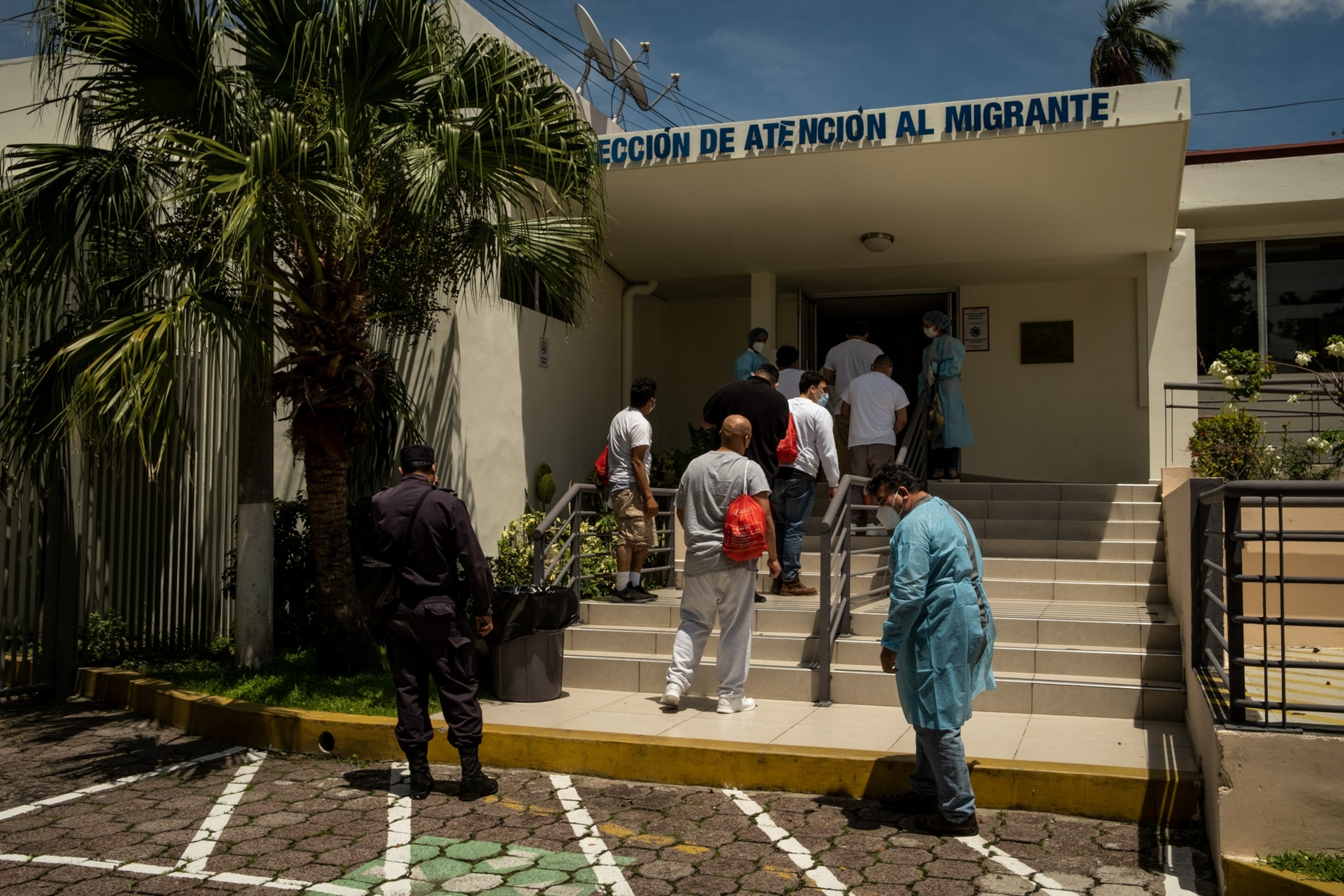
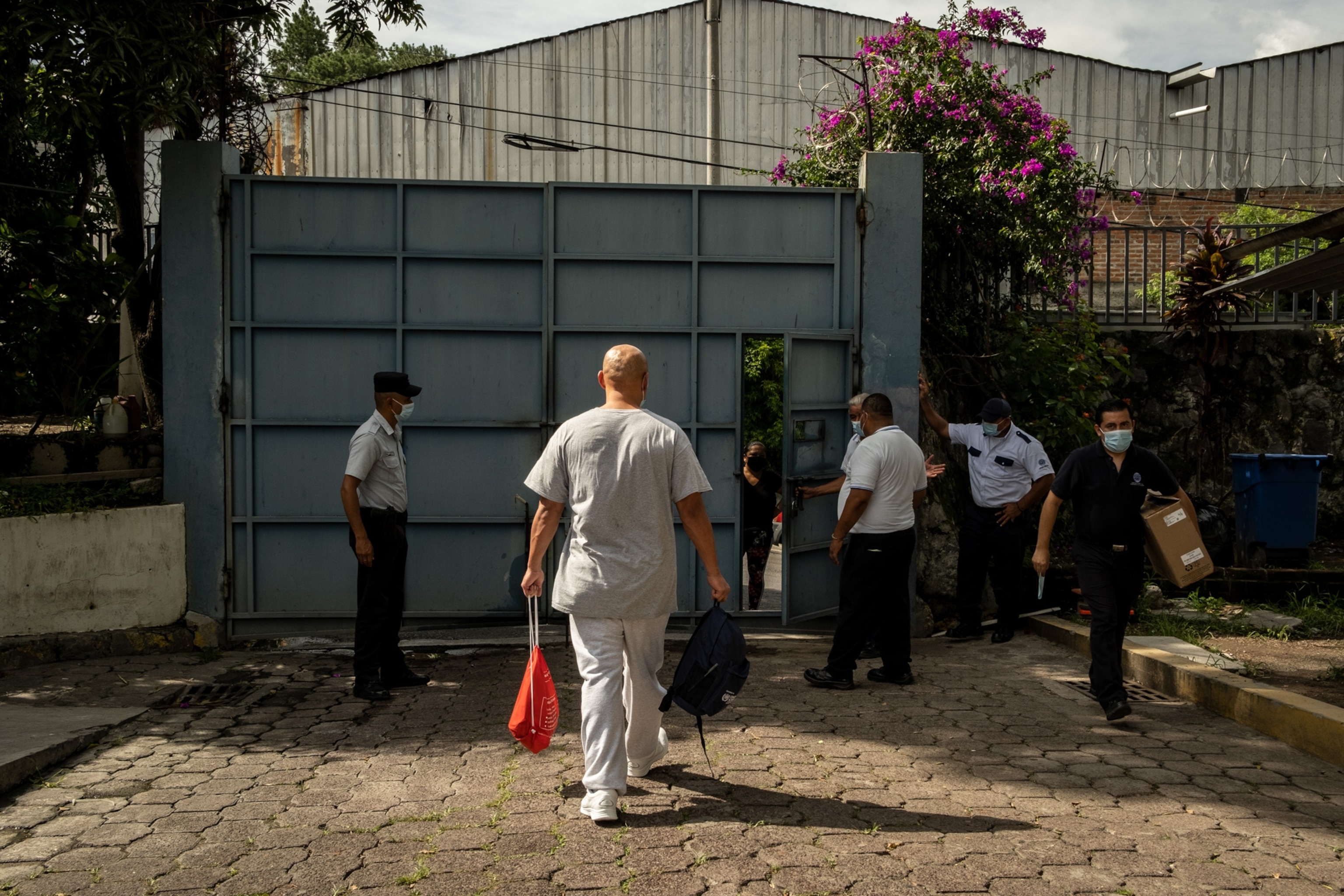
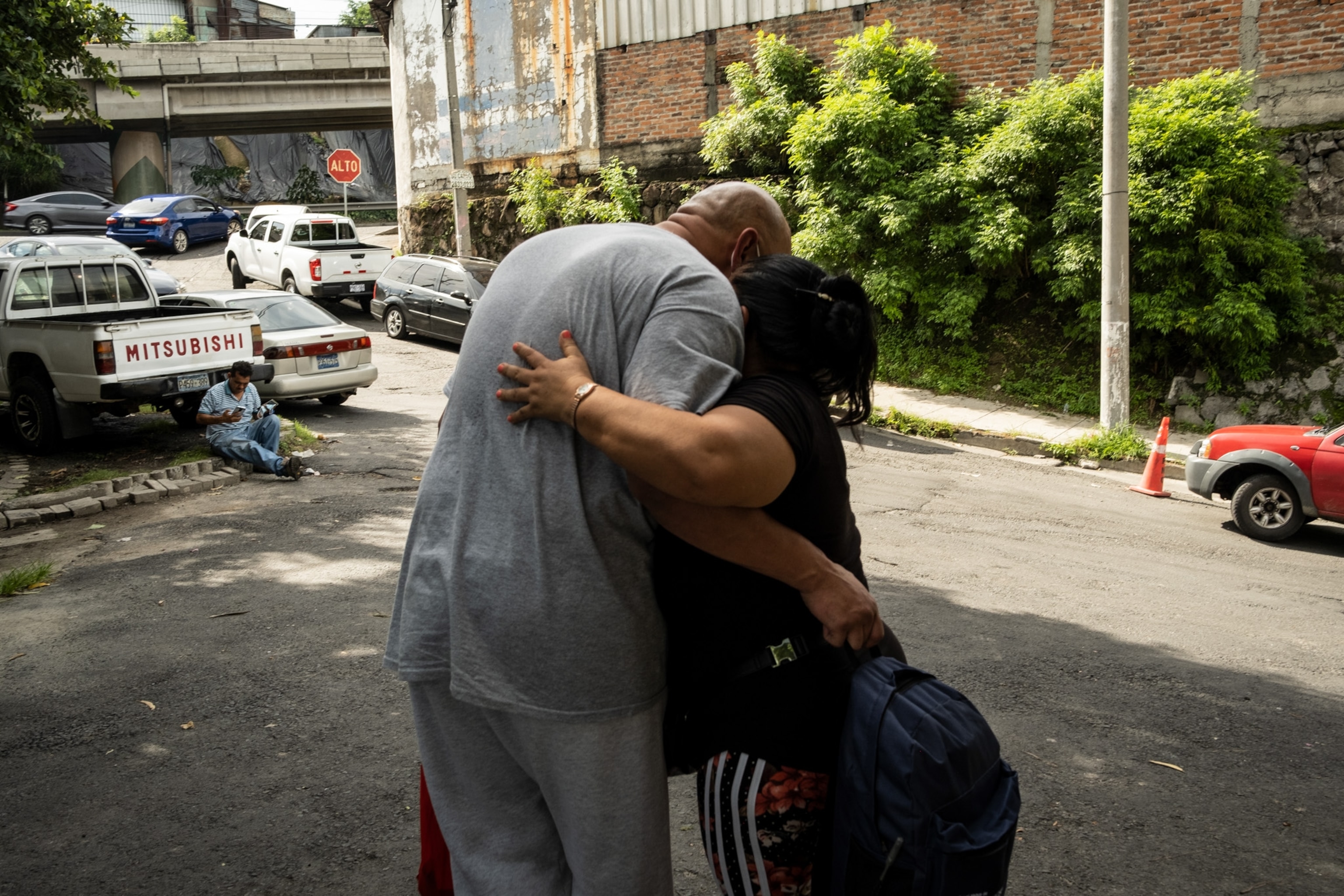
Santiago is one of the newest members of Hungry Church, an organization founded by deportees to help those without family or support in El Salvador. It provides short-term housing, helps find job opportunities, and organizes activities to create community. Santiago asked to be identified by just his first name because of safety concerns. (Deportees are sometimes targets of violence and extortion because of the belief they are being sent money from relatives in the United States.)
After 40 years in southern California, Santiago was arrested by immigration authorities in December 2020 for an outstanding deportation order after his refugee status request was denied in 1989. He was leaving his house, lunchbox in hand, on the way to his job at a carwash, where he says he had risen the ranks to a managerial position. He has three children—ages 20, 17, and 13—all born in the U.S.
Santiago has only hazy memories of his childhood in El Salvador. In his first weeks back, Santiago wandered from one end of the country to another. He first went to a rural town on the eastern edge of El Salvador with a friend from ICE detention where he spent a few days until he felt he had overstayed his welcome. From there, he headed to his mother’s hometown 180 miles away to search for distant relatives, but he couldn’t find them, so he made his way back to the city.
Then he heard about Hungry Church through a government official he had met when he was deported.
“I’m blessed that I have a place to stay,” says Santiago, dressed in shorts, flip-flops, and a Chicago Cubs T-shirt given to him upon arrival in El Salvador six months ago. “Because when I got deported, it was like, ‘Yo, you might as well pull the trigger yourself. You’re sending me to a country I know nothing of, where I have no family.’ You know what I mean?”
“I never thought I would be back here,” he says.
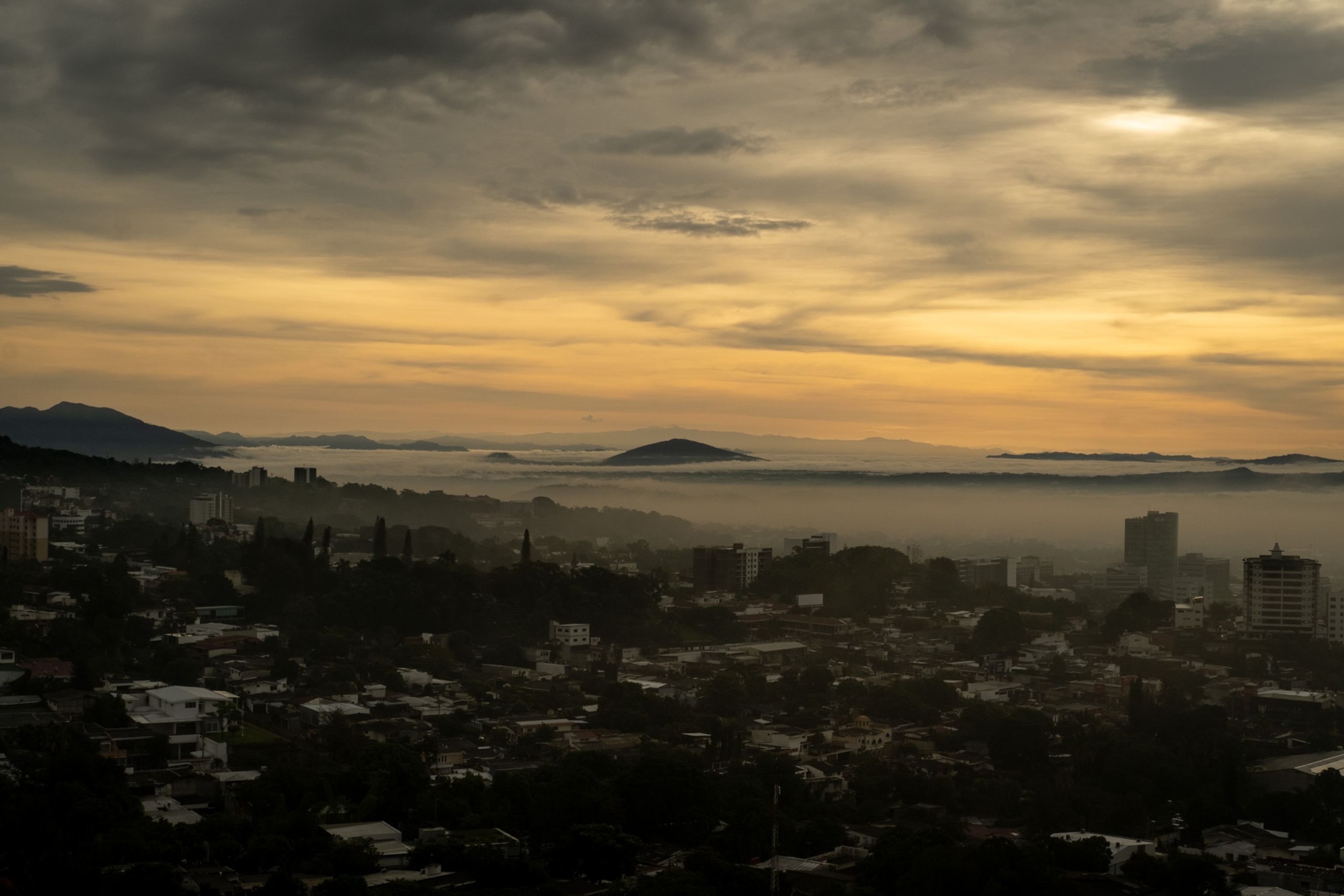
Santiago is still finding his footing, but other deportees in El Salvador have found ways to start over while still staying connected to the culture, family, and ties they built in the U.S. They work as lawyers and advocates, own their own businesses, and run projects that combine their two cultures and language skills. At least one deportee is using what he learned in the U.S. to get involved in local politics. Yet even on the days when everything is going right, these deported men and women feel torn between two worlds. They know they have to move forward, but worry that each step ahead could mean leaving behind the people and places they love.
As Santiago prays at Hungry Church, he thinks of the sacrifices his family has had to make since he was deported. His oldest daughter recently dropped out of community college to help her mom financially.
“I need to find my way back home to my family,” he says.
Virtual mom
Machado also was consumed with finding a way back to Arkansas when she was first deported in 2017. A routine traffic stop alerted immigration authorities to the fact that she was undocumented — and that she had a previous conviction for writing false checks at age 18, an act of which she says she didn’t understand the consequences at that age. But after spending two years in an immigrant detention facility in Louisiana awaiting her second deportation, with only the occasional 10-minute call to her kids, she has decided parenting from afar in El Salvador is a better fit for her family.
For Machado, being a “virtual mom” now motivates her to help other families get back together and keeps her rooted in El Salvador.
“You have the chance to reunite families after yours has been destroyed and shattered by immigration (authorities). Why not try to reunite as many families as possible?” she says. Shortly after, she shows off a photo of her three children at one of her favorite museums in Arkansas that popped up on her buzzing cellphone.
“I would give anything in this world to be home,” she says.
Wrong place, wrong time, wrong people
Alex Morales, 29, spent his teenage years in Arkansas just a 10-minute drive from where Machado lived. The two have more than a hundred mutual friends on Facebook, but never met until they were both deported to El Salvador.
Morales emigrated to the U.S. at age 5 with his mom and stepdad, living first in Los Angeles, where he says he was bullied for being too nerdy, and then Arkansas, where he fit in better and he says he joined a handful of after-school clubs, such as the Future Business Leaders of America and Free Thinkers Club.
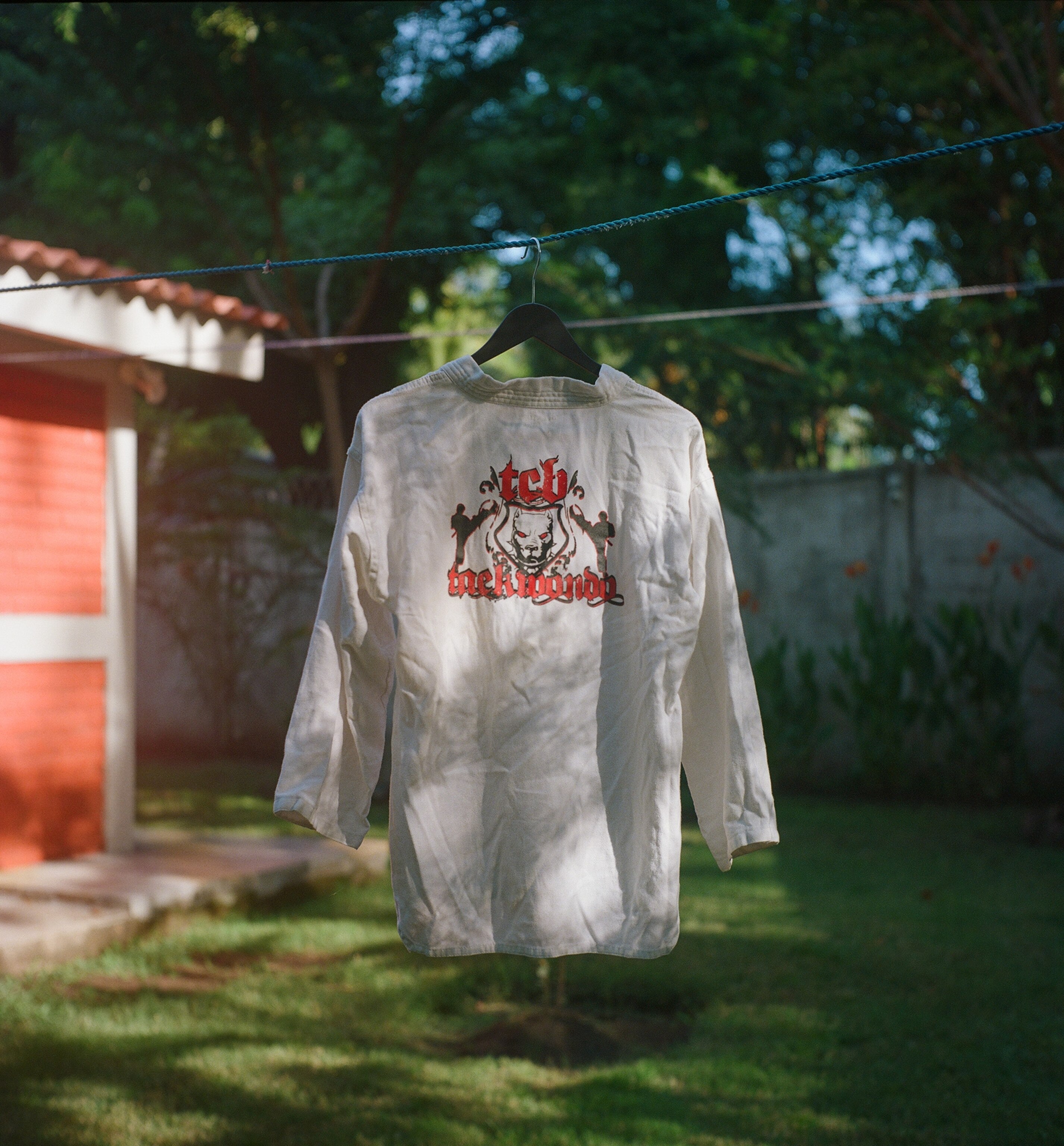
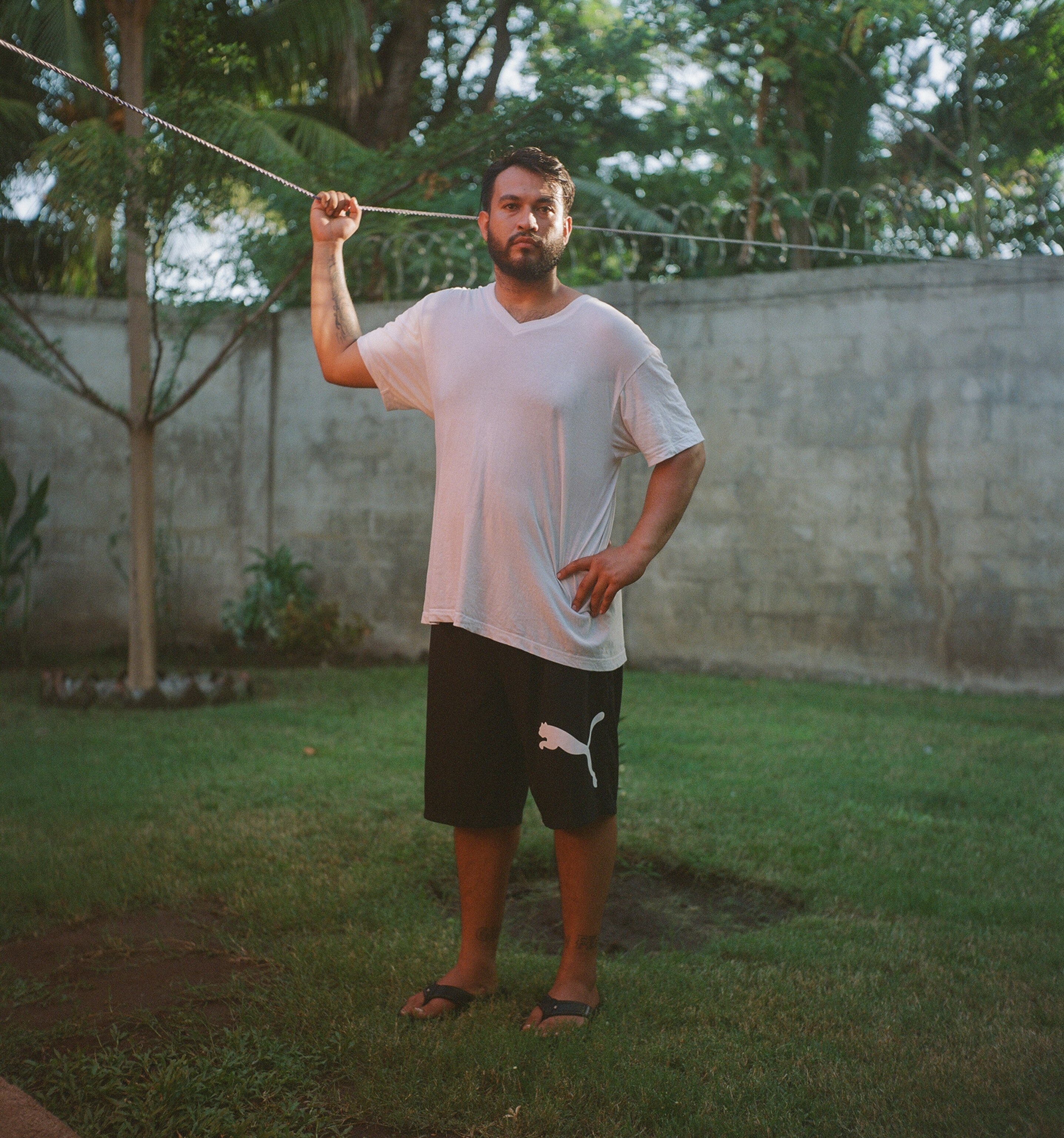
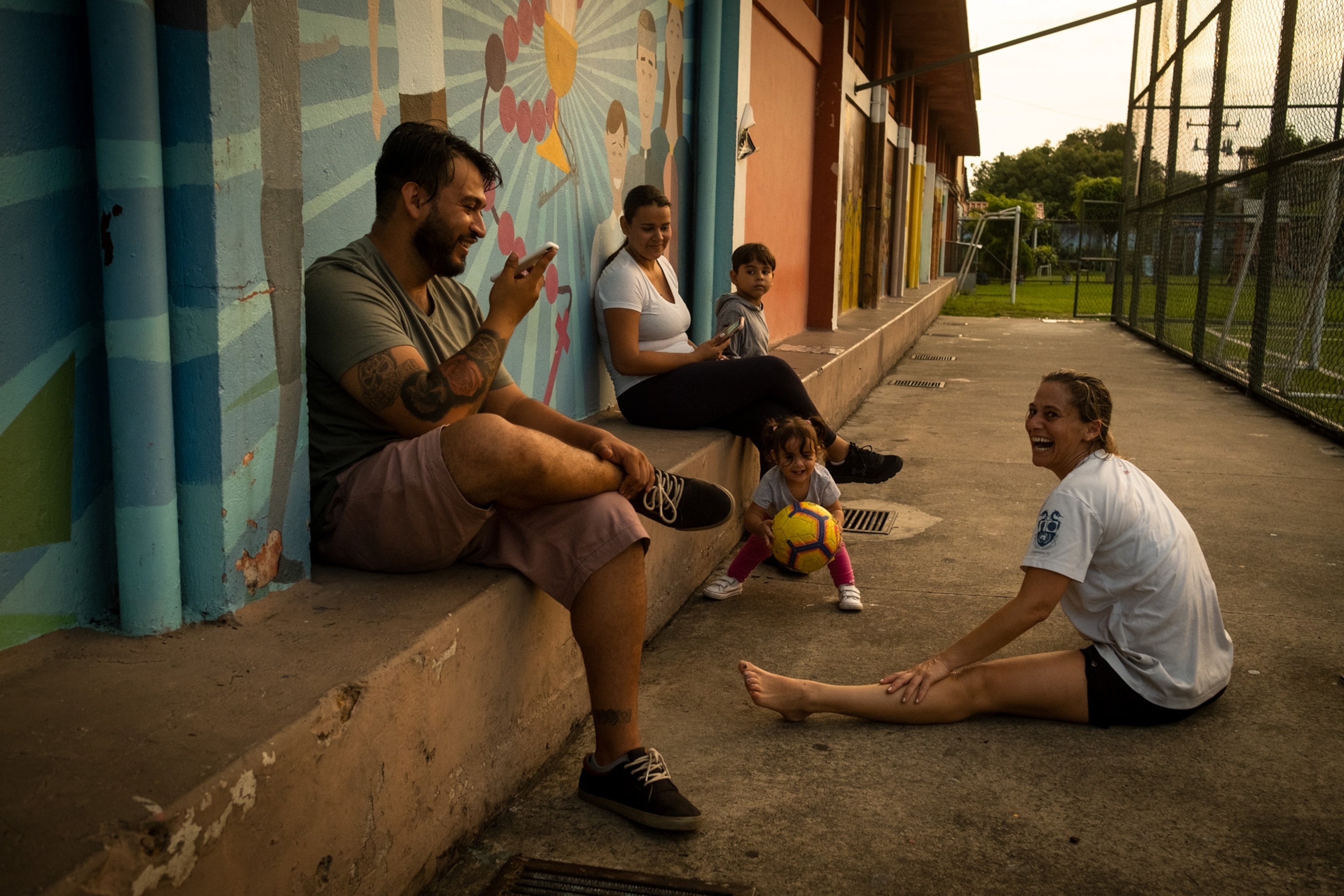
He says he was a few credits away from graduating from the University of Arkansas with a business degree when he accompanied a friend to pick up some money his friend was owed and ending up getting in a fight in which he acted in self-defense, he says. Morales says he took a plea deal following the arrest fearing more than a decade in prison if he didn’t, but he insists it was a trumped-up charge from being “at the wrong place at the wrong time with the wrong people.”
Even though Morales had obtained permanent resident status, also known as a green card, an aggravated felony conviction is grounds for deportation for noncitizens, including immigrants with legal status.“At this point my life is over,” he says he thought at the time.
But after nearly two years in El Salvador, he’s starting to see a path forward. He and his Salvadoran girlfriend welcomed their first child, Rosalyn, last year. Now he runs his own Airbnb while living in the property’s guesthouse, where wide-eyed Rosalyn waddles around. He also manages other properties at the beach town where his mom grew up. Translating for his parents while living in the U.S. and helping his dad liaison with clients for his stonemason business turned out to be good preparation for his current life. He spends a lot of time answering questions from U.S. clients and responding to business emails.
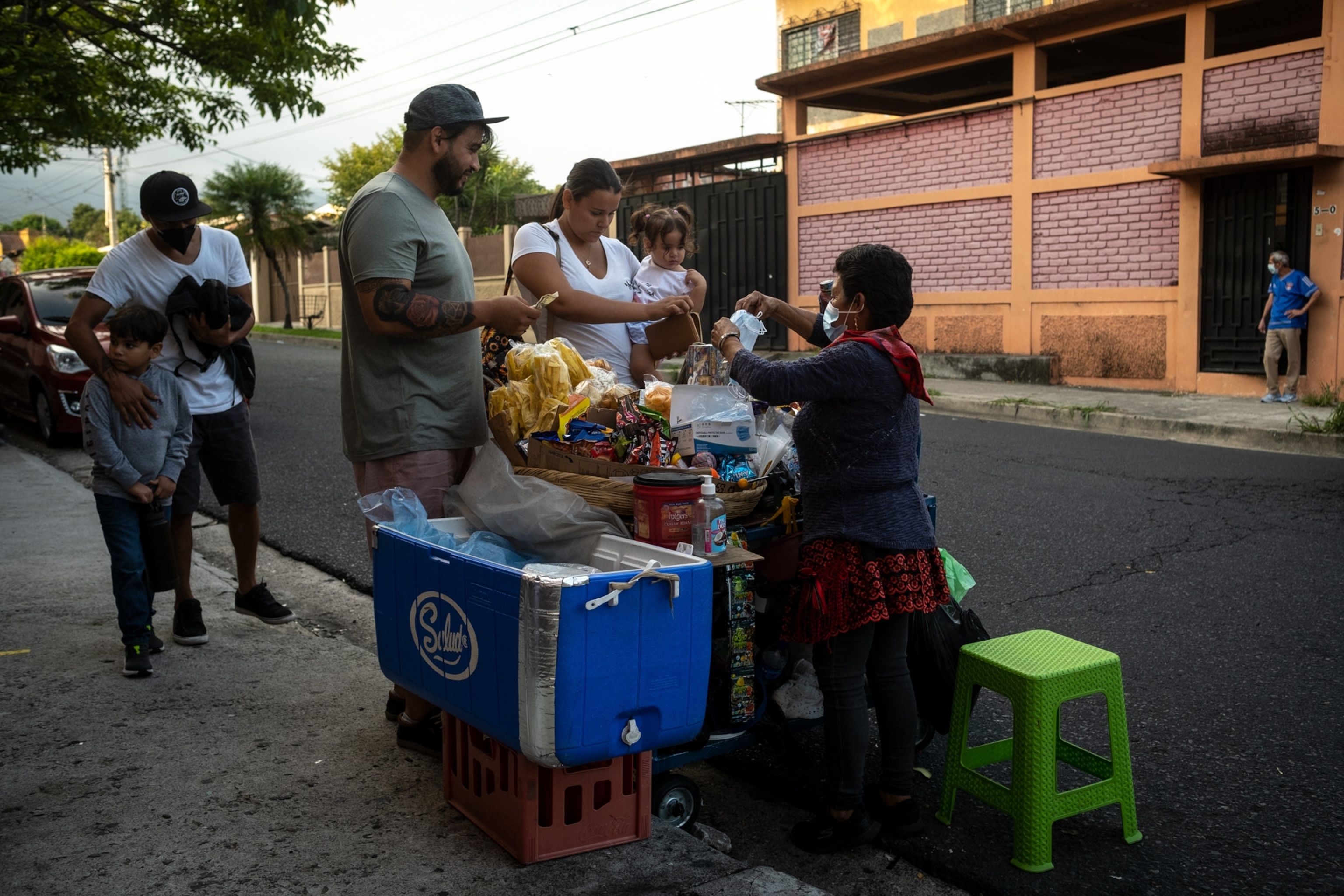
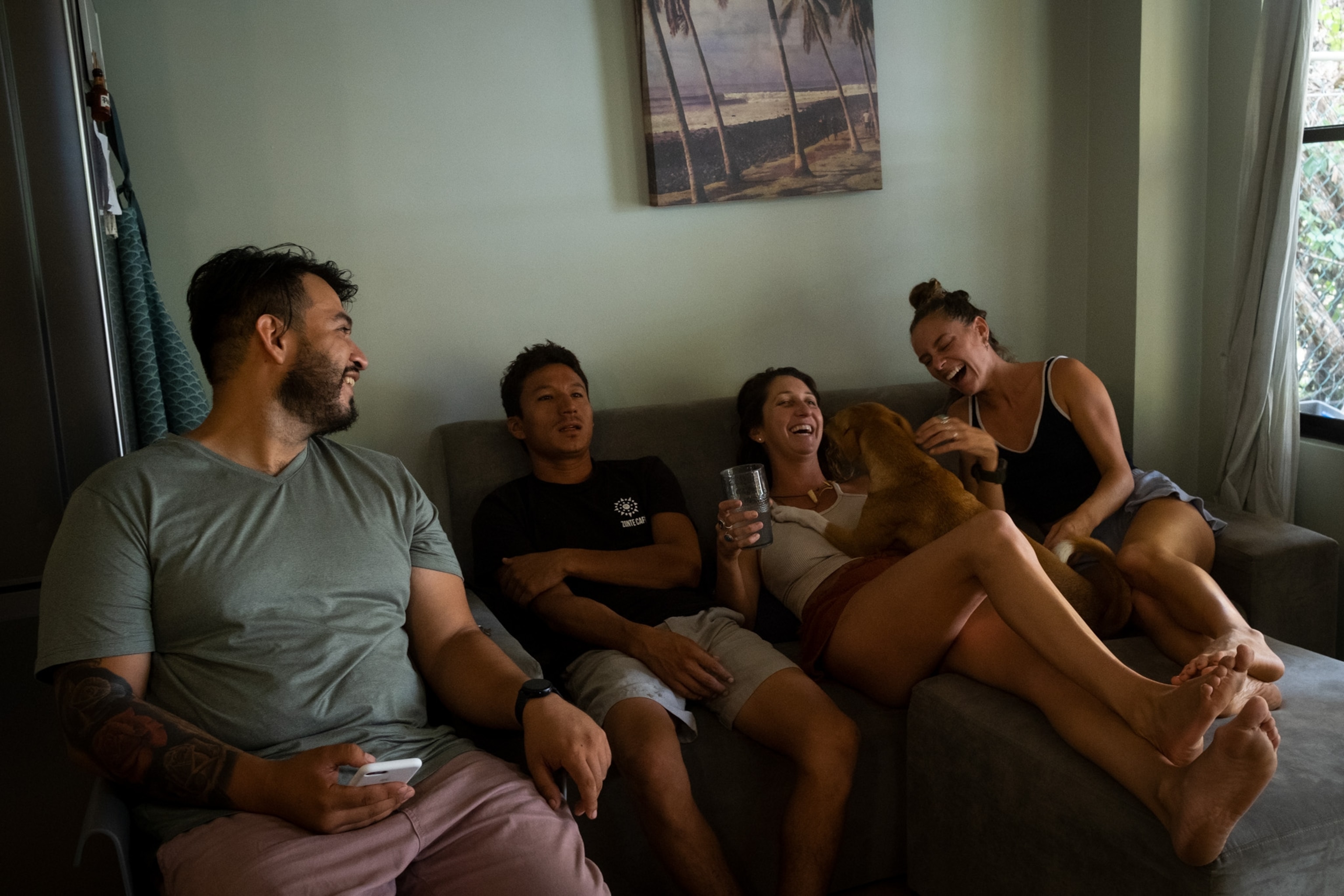
“Sometimes in life you have to let go of what you know to embrace what’s on the horizon and hope for the best,” he says.
Ground zero for migration
About a hundred miles south of where Morales lives sits Intipucá, a sleepy beachside town that claims to be ground zero for Salvadoran migration. When Sigfredo Chávez left Intipucá in 1967 and settled in Washington, D.C., he paved the way for thousands more from the town to follow. A statue of Chávez now stands in the town center in a nod to the contributions migrants have made to Intipucá.
U.S. influence abounds here: Red, white, and blue banners adorn shops, hot dog vendors dot street corners, and ornate homes stand as a testament to construction made possible with money sent from relatives in the United States.
Herson Mercado, 30, is among those who migrated from Intipucá. He fled in 2007 to reunite with his mom in New Jersey and leave behind the growing gang violence. His asylum request was denied and he was issued a deportation order instead. But Mercado managed to avoid immediate departure. When he got married to an American in 2017, he assumed he could legalize his status.
But when Mercado went to the interview in September 2019 with his wife and 9-month-old son, immigration officials were already waiting to take him into custody. His deportation order meant ICE could detain him at any time.
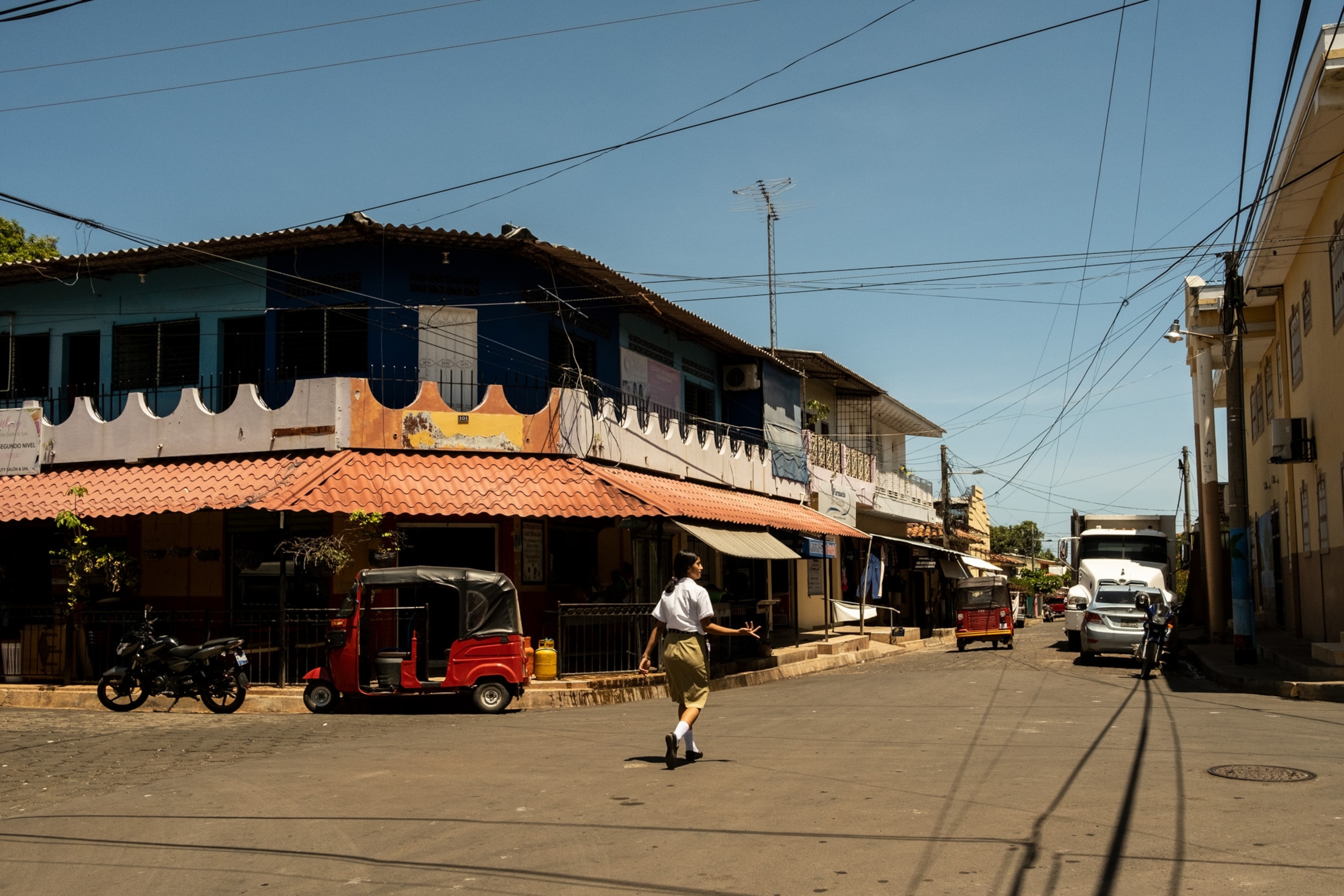
Being deported felt like getting his wings clipped right when he was ready to fly, Mercado says, speaking in Spanglish, a mix of English and Spanish. “Me cortaron las alas,” he says. (They clipped my wings).
When he returned to Intipucá, he rode a bike door to door looking for old friends he hadn’t seen since he was 16. But most had emigrated. Others had been killed.
In New Jersey, Mercado had been thriving. His work with a landscape company had been going well and he had been excited about being a new father. But in El Salvador, doors slammed in his face. Call centers told him his level of English made him a strong candidate, but they couldn't hire him until he finished his high school degree. He had dropped out after a year and a half of high school in the U.S. to get a job to help his mom pay the bills.
“There, your effort is rewarded,” he says of the U.S. “Here, if you don’t have a friend, you can’t get work.”
Nevertheless, Mercado decided to run for office in local elections held in February. He was starting to find a purpose in El Salvador, but a call from his wife breaking up with him felt like he was getting his wings clipped—again.
“I wanted to leave. I was desperate. I was terrified at the idea of my son calling someone else dad,” he says. “But at the same time, there was something that didn’t let me leave. I didn’t want to let down the people who trusted me to represent them in elections.”
So he stayed. Mercado’s party didn’t win the elections but he still earned a seat on the city council board, a part-time position that began in May. He hopes to pressure city leaders to upgrade infrastructure, pave dirt roads, and launch more youth programs, like the music lessons he took in the U.S. to learn guitar. He still thinks about emigrating, but not as much as before. “Unless a legal way for me to go presents itself, I’m not going to,” he says.
Life after deportation
Walter Blanco, 50, another deportee in Intipucá, believes in life after deportation. “In the U.S., there are doctors, lawyers, and engineers,” he says in Spanish from his office in Intipucá on a recent Monday morning. “Here too.”
He was deported back to El Salvador in 2001 after an informant agreement soured, Blanco says, and he was convicted for aiding and abetting the sale of drugs, which stripped him of his green card. Blanco had lived in the U.S. from age 13 to 30 with his mom, who later became a U.S. citizen.
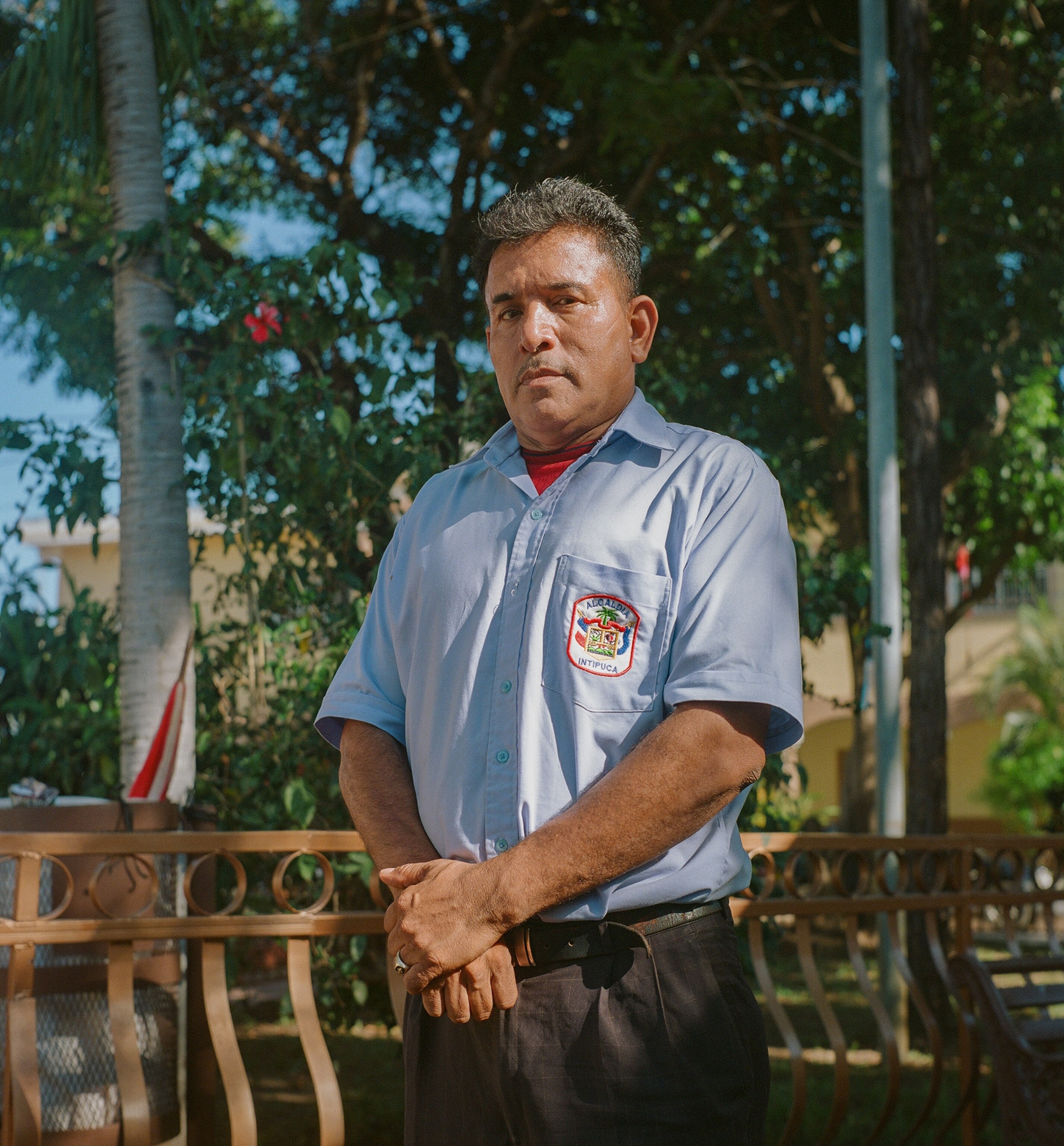

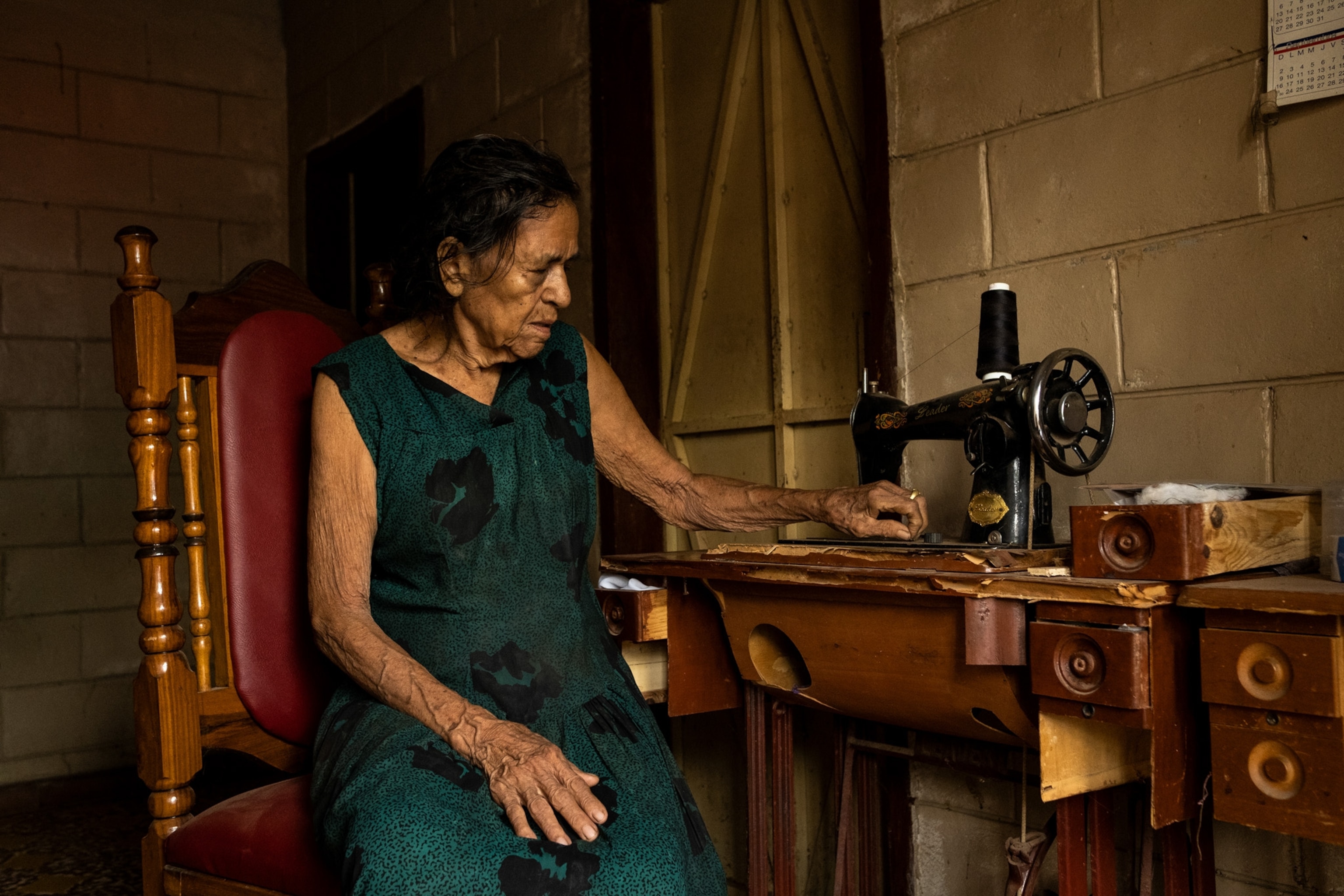
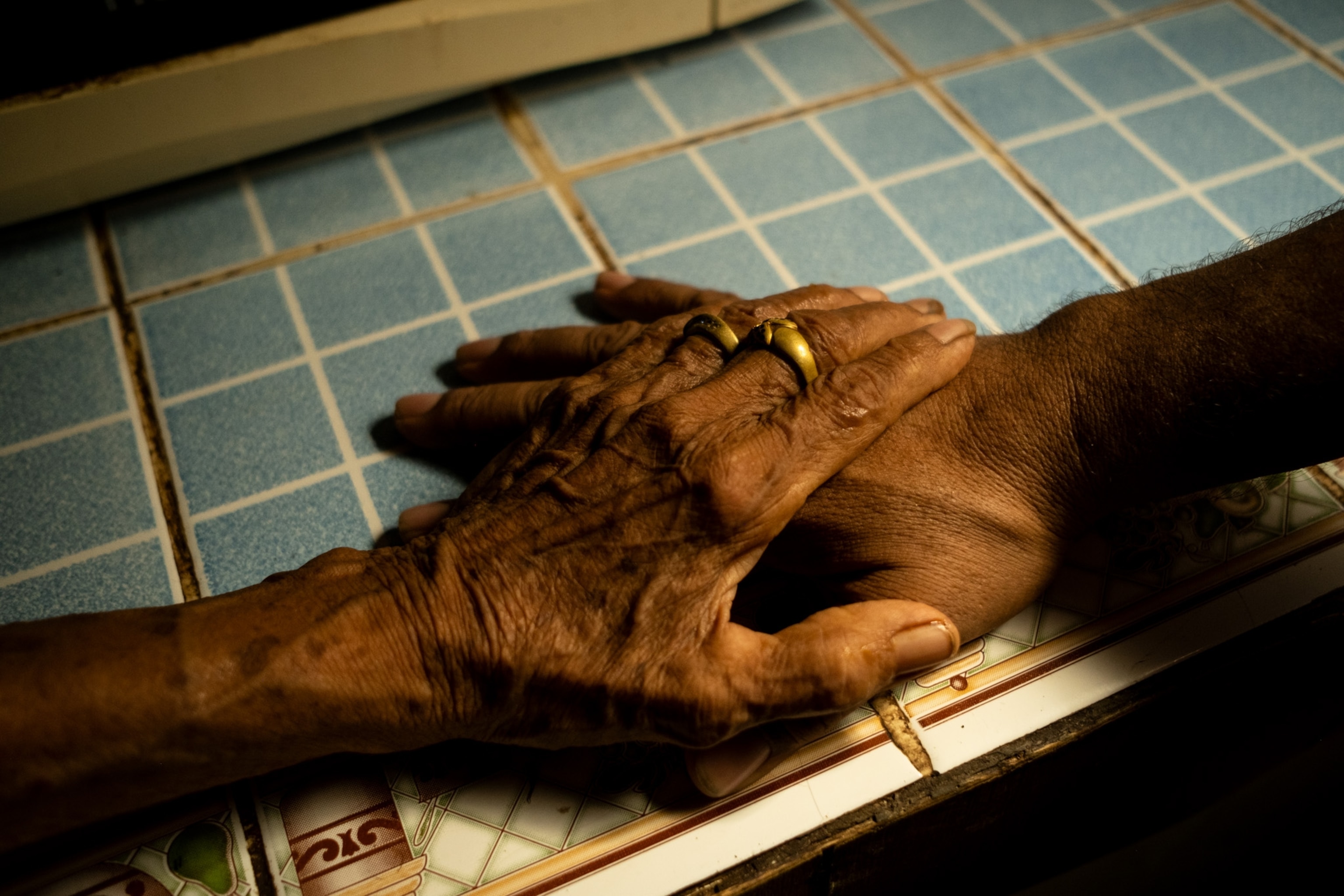
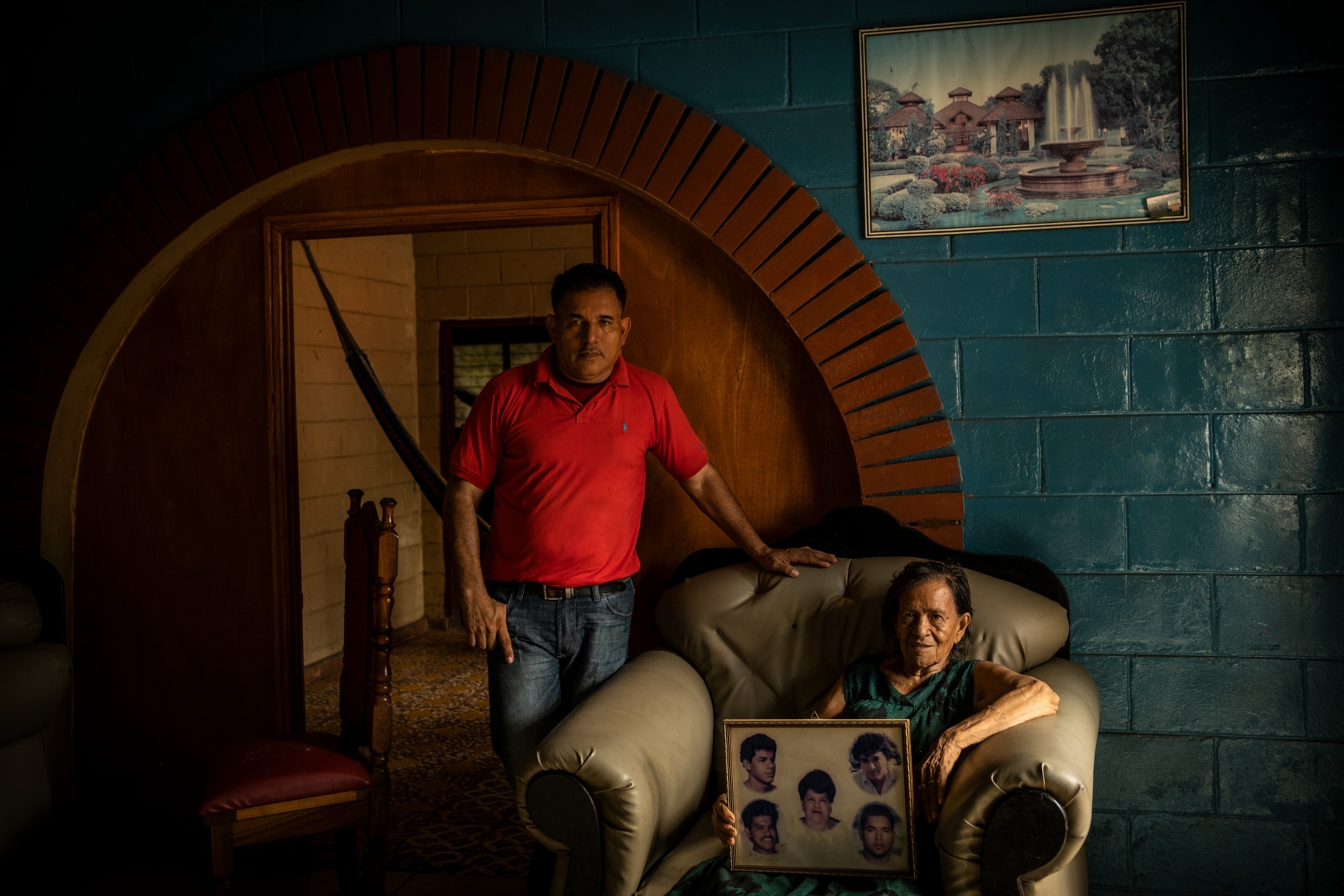
He still feels a connection to the United States. He watched the Twin Towers fall on TV from Intipucá and says he was offended by neighbors who burned American flags. “It bothered me because I am very grateful for the U.S.,” he says.
In El Salvador, Blanco ultimately went back to school and earned a law degree. He now owns a private family law and legal defense practice and takes care of his mom who joined him in Intipucá in 2013 after being diagnosed with Alzheimer’s. Sometimes he imagines what his life could have been if he stayed in the U.S. But just as he used to imagine as a kid how it would feel to fly like Superman, he doesn’t dwell too long on things that he says he knows are impossible. For him, that means letting go of the American dream.
“You have to know yourself and know that your problems come from within,” Blanco says. “And you yourself have the solution.”
For Machado, the virtual mom, letting go of the idea of what could have been also has helped her move forward in her own country.
“If you're blessed, if you have the support of your family to help you move on, there is life after deportation,” she says. “You can make the best out of anything.”
Anna-Catherine Brigida is a freelance journalist who has covered Central America since 2015. She is a 2021 Alicia Patterson Foundation fellow reporting on mental health in El Salvador and Honduras. Follow her on Twitter @AnnaCat_Brigida
Cristina Baussan is a documentary photographer based between El Salvador and Haiti. See more of her work on her website or on Instagram.

